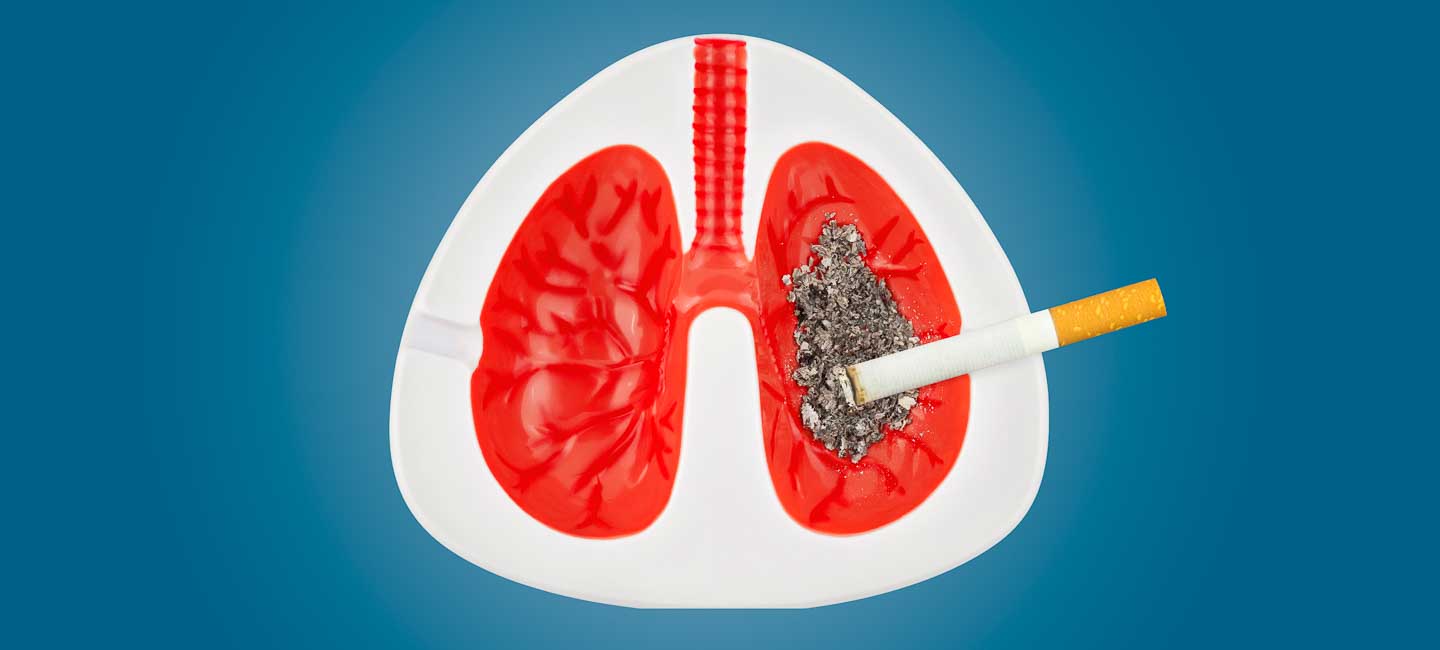What Keeps Cancer Patients from Quitting Cigarettes?
For most people, the only thing worse than being in a bad situation is the feeling that you may have brought it upon yourself.
So imagine how a patient with lung cancer feels when the first reaction after sharing their diagnosis is, “I didn’t know you smoked.” It’s called lung cancer stigma; guilt, shame, blame, regret and an assortment of negative emotions that smokers or former smokers may experience with a cancer diagnosis. While it’s most frequently associated with lung cancer, those who’ve smoked may also experience it when diagnosed with head and neck cancers or other malignancies linked to cigarettes.
It’s real. Just ask Moffitt experts and researchers who deal with smoking cessation in cancer patients.
“I had a patient who said, ‘You’d think I would have quit by now. I’m such an idiot,’ ” shared Lisa Sloan, the Moffitt tobacco treatment specialist who helps patients quit smoking. “They spend extra energy beating themselves up instead of using that energy to break free of nicotine.”
“I specifically remember one patient telling me, ‘You know, I feel like I’ve robbed the bank and I’m going into the sheriff’s office,’ ” added Moffitt researcher Dr. Vani Nath Simmons. “To me, that quote really illuminated the experience of stigma and the feelings that they’re having. You could really see how that would be a barrier to getting the help that they need in quitting smoking and maintaining their smoking abstinence.”
Getting past that stigma and getting the patient the help they need to quit is important to their physical and mental well-being. Studies have shown that continued smoking reduces the effectiveness of cancer treatment and can increase risks of secondary cancers. Simmons added that those who experience stigma also experience depression and a lower quality of life. She said the fear of being judged can prevent patients from asking for help or having an honest conversation with their health care providers about their smoking.
Both Simmons and Sloan agree that the first step toward disarming the stigma is to place the blame on the product and not the people. Sloan says she tries to provide perspective. “As I told that patient, the cigarette is a designer drug made to hook you. It is made to make you feel miserable if you go without it. And it’s not like a light switch. You just don’t turn it off. You really have to persevere to find relief.”
Moffitt wants every patient to feel supported in making changes that can lead to best outcomes. As scientific director of Moffitt Cancer Center’s Cessation Initiative grant, Simmons is working to develop smoking cessation infrastructure that will help patients get the quitting support they need. The two-year $500,000 grant through the National Cancer Institute’s Cancer Moonshot Initiative will help modify Moffitt’s electronic health record (EHR) to provide advice and connections to evidence-based treatment tailored to their specific needs.
Changes to Moffitt’s EHR can reduce the stigma by normalizing tobacco treatment as standard practice for all patients who smoke. These changes can better connect patients to cessation resources and provide quality data useful in monitoring the process and its success.
“Part of that is going to be changing the culture to show that we think that quitting smoking is an important priority here at Moffitt,” said Simmons. “Increasing visibility of the issue through even simple measures like signage and incorporating measures into Moffitt’s EHR systems should reduce some of the stigma and open up opportunities for conversations.”
Because it’s smoking that’s bad. Smokers are not.


